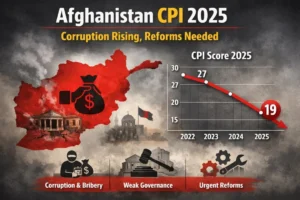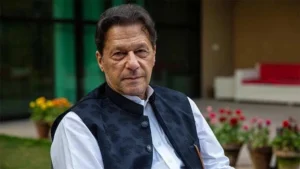The recent engagement between U.S. President Donald Trump and Pakistan’s military chief Field Marshal Asim Munir reflects a significant recalibration in U.S. foreign policy towards South Asia, one that has unsettled India’s strategic calculations and triggered a reassessment of its regional diplomacy. This renewed U.S.-Pakistan interaction, particularly the White House meeting, signals a departure from previous U.S. approaches and underscores Pakistan’s enduring strategic importance rooted in its geopolitical position and influence in counterterrorism collaboration.
India’s Unease
India’s reaction to this development reflects its habitual skepticism towards Pakistan’s military leadership, a stance often rooted in entrenched biases rather than objective assessments, and concerns over the potential transfer of U.S. military support that could empower Pakistan against Indian interests. Pakistan has consistently and firmly refuted unfounded Indian allegations of supporting militants, urging New Delhi to provide credible evidence, none of which has ever withstood international scrutiny. New Delhi’s diplomatic protest to Washington over the Trump-Munir meeting reveals a deep discomfort with the perceived diplomatic signals being sent by Washington, highlighting a blunt reality: Pakistan’s role in the region is recognized on its own merits, beyond Indian narratives.
India’s reaction also exposes its miscalculations and hubris in expecting exclusive U.S. backing against Pakistan. The assumption that the U.S. relationship with India automatically diminishes Pakistan’s geopolitical relevance overlooks the complexity of international alignments. Pakistan’s strategic relevance is not just defined by its regional rivalry with India, but also by its position in managing Afghanistan’s stability and its balancing role amid the U.S.-China rivalry. The fact that the U.S. is engaging Pakistan intensively shows a practical recognition of these dynamics rather than a mere diplomatic gesture.
Interestingly, India’s response has transcended diplomatic complaints to tangible shifts in foreign policy, notably in recalibrating its ties with China. The thawing of India-China relations, including easing restrictions on Chinese investments imposed after the 2020 clashes, indicates India’s hedging strategy amid the unpredictability of U.S. foreign policy. This signals New Delhi’s pragmatic approach in adjusting its strategic posture, not solely relying on the U.S. as a counterbalance to Pakistan and China, but exploring a diversified engagement, reflecting an evolving regional order influenced by shifting power balances.
The Broader Geopolitical Landscape
India’s inconsistent foreign policy stance is evident in its opportunistic alignment patterns, including its fluctuating position on the Afghan Taliban, previously branded terrorists and now subject to diplomatic engagement. This opportunism highlights a transactional approach driven by immediate interests rather than long-term consistency, which weakens India’s credibility internationally. Conversely, Pakistan’s strategic acumen demonstrates a deep, principled understanding of regional and global geopolitics, adeptly cultivating ties with major powers while steadfastly upholding its sovereignty and national interests, independent of coercive narratives
The concerns that India might attempt to leverage U.S. policy to constrain Pakistan risk backfiring by alienating Washington and complicating India’s strategic aspirations in the Indian Ocean and broader Indo-Pacific region. If India’s rising power encourages it to push the U.S. out of the regional balance, it would undermine the strategic stability that multiple actors, including the U.S. and Pakistan, seek to uphold for mutual benefit. This calls for a mature appreciation of the fluid regional environment, where no single country can unilaterally dictate policy choices without repercussions.
Conclusion:
In essence, the renewed U.S.-Pakistan engagement under Trump’s administration marks a pragmatic acknowledgment of Pakistan’s enduring strategic relevance. India’s reaction, marked by diplomatic protests and recalibrations with China, reflects both insecurity and a strategic pivot towards nuanced multipolarity. The episode underscores that Pakistan’s position in South Asia’s geopolitical matrix remains pivotal, demanding recognition based on its merit rather than being overshadowed by regional rivalries or miscalculations.







